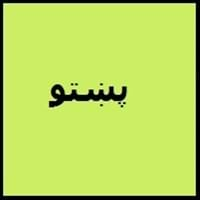Countries
Andorra, Balearic Islands, Catalonia, Latin Union, Spain, Valencian Community
Afganistan
National Language
Andorra, France, Italy, Spain
Afganistan, Pakistan, Pashtun diaspora
Second Language
Spain
Not spoken in any of the countries
Speaking Continents
Europe
Asia
Minority Language
Aragon, France, Italy, Spain
Pakistan
Regulated By
Institut d'Estudis Catalans, Acadèmia Valenciana de la Llengua, National Languages Committee
Academy of Sciences of Afghanistan, Pashto Academy (Pakistan)
Interesting Facts
- Catalan is 6th most largely spoken Romance language.
- Catalan went through a golden age in low middle ages, reaching a peak of maturity and cultural richness.
- Pashto language is originated in the regions of Paktika and Paktia areas of Afghanistan.
- The first Pashto poem was written in the 7th century.
Similar To
Spanish Language, Occitan Language, Italian Language, French Language
Persian and Balochi Languages
Derived From
Latin
Not Available
Alphabets in
Catalan-Alpahabets.jpg#200
Pashto-Alphabets.jpg#200
Writing Direction
Left-To-Right, Horizontal
Right-To-Left, Horizontal
Thank You
Gràcies
(manana) مننه (tashakor) تشكر
How Are You?
Com estàs?
(ta sanga yee?) څنگه يې؟
Good Night
Bona nit
(shpa mo pa kheyr) شپه مو په خير
Good Evening
Bona nit
(maakhaam mo pa kheyr) ماښام مو په خير
Good Afternoon
Bona tarda
(wradz mo pa kheyr) ورځ مو په خير
Good Morning
Bon dia
(sahr pikheyr) سحر پخير
Please
Sisplau
(lotfan) لطفا
Sorry
Perdó!
(zeh mutaasif yum) زه هتاسف يم
Bye
Adéu
(da khoday pa amaan) دخداى په امان
I Love You
T'estimo
زه ستا سره مينه کوم (za la ta sara meena kawom)
Excuse Me
Dispensi!
(bakhena ghwaarum) بخښنه غواړم
Dialect 1
Caló
Central Pashto
Where They Speak
France, Portugal, Spain
Afganistan, Pakistan
Dialect 2
Valencian
Northern Pashto
Where They Speak
Spain
Afganistan, Pakistan
Dialect 3
Ribagorçan
Wanetsi
Where They Speak
Spain
Afganistan, Pakistan
How Many People Speak
Not Available
Speaking Population
Not Available
Second Language Speakers
Not Available
Native Name
català
(paṧto) پښتو
Alternative Names
Català, Catalán, Catalan-Valencian-Balear, Catalonian, Valencian
Kandahar Pashto, Qandahar Pashto, Southwestern Pashto, Pushto
French Name
catalan; valencien
pachto
German Name
Katalanisch
Paschtu
Pronunciation
[kətəˈɫa] (EC) ~ [kataˈɫa] (WC)
[ˈpəʂt̪oː], [ˈpʊxt̪oː]
Ethnicity
Catalan people
Pashtun
Language Family
Indo-European Family
Indo-European Family
Subgroup
Romance
Indo-Iranian
Branch
Not Available
Iranian
Early Forms
Old Catalan
No early forms
Standard Forms
Standard Catalan, Standard Valencian
Central Pashto, Northern Pashto, Yusufzai Pashto, Southern Pashto
Language Position
Not Available
Signed Forms
Signed Catalan
Not Available
Scope
Individual
Individual
ISO 639 6
Not Available
Not Available
Glottocode
stan1289
pash1269
Linguasphere
51-AAA-e
58-ABD-a
Language Type
Living
Living
Language Linguistic Typology
Subject-Verb-Object
Subject-Object-Verb
Language Morphological Typology
Not Available
Fusional
Catalan and Pashto Greetings
People around the world use different languages to interact with each other. Even if we cannot communicate fluently in any language, it will always be beneficial to know about some of the common greetings or phrases from that language. This is where Catalan and Pashto greetings helps you to understand basic phrases in Catalan and Pashto language. Catalan word for "Hello" is Hola or Pashto word for "Thank You" is (manana) مننه (tashakor) تشكر. Find more of such common Catalan Greetings and Pashto Greetings. These greetings will help you to be more confident when conversing with natives that speak these languages.
Catalan vs Pashto Difficulty
The Catalan vs Pashto difficulty level basically depends on the number of Catalan Alphabets and Pashto Alphabets. Also the number of vowels and consonants in the language plays an important role in deciding the difficulty level of that language. The important points to be considered when we compare Catalan and Pashto are the origin, speaking countries, language family, different greetings, speaking population of these languages. Want to know in Catalan and Pashto, which language is harder to learn? Time required to learn Catalan is 24 weeks while to learn Pashto time required is 44 weeks.





